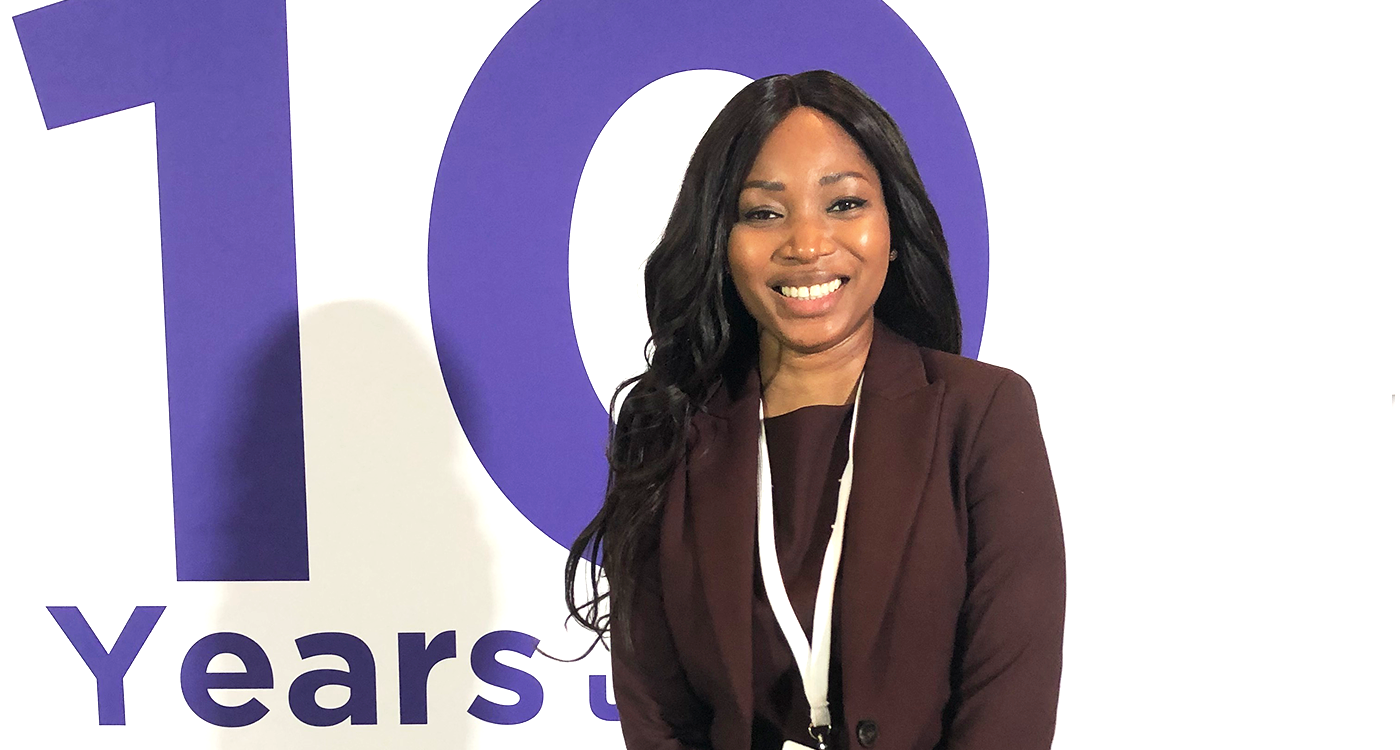
Courtesy of Kiki James
Malala Fund Education Champion Kiki James spoke about her work in Nigeria ensuring that all girls can access quality education at the World Innovation Summit for Education 2019.
In November 2019, leaders, education experts, students and civil society from around the world gathered at the World Innovation Summit for Education (WISE) 2019 in Qatar to discuss the future of education. Through panels, storytelling sessions and a pitch event, Malala Fund Education Champions from India, Pakistan and Nigeria offered peers their expertise as grassroots advocates.
Malala Fund Champion Kiki James spoke about her work in Nigeria ensuring that all girls can access quality education. There are more than 13 million children out of school in Nigeria — and 60% are girls. As founder and CEO of ACE Charity, Kiki advocates for the government to increase its education budget. The Nigerian government allocated 7% of the 2018 federal budget to education. The United Nations recommends that governments of lower-income countries spend 15-20% on education.
With ACE Charity, Kiki also hosts radio segments and community meetings to challenge traditional, discriminatory beliefs that limit opportunities for girls. She helps equip under-resourced schools with fully functional libraries, providing them with computers, generators, diesel to fuel the generators and relevant books.
Malala Fund caught up with Kiki to hear about her key takeaways from the WISE Summit 2019.
Carine Umuhumuza (CU): What were your expectations going into the conference?
Kiki James (KJ): I was hoping to gain new insights on [the state of] education around the world. I was particularly interested in learning new systems and approaches on how to further reduce illiteracy in marginalised communities from a diverse and global perspective.
CU: This year’s WISE theme was “Unlearn, Relearn: What it means to be Human.” What are some things you’ve been inspired to unlearn and relearn? What was the most impactful session for you?
KJ: During [one of the] “Hear My Story” [presentations], a female presenter reaffirmed my belief in the power of a good performance management system within education. Good data helps us make data-driven decisions and impact policy. Her description of the depth and breadth of her work in education highlighted how brilliant ideas are often disrupted because of a lack of funding or strong political will but authentic data can make a huge difference and possibly influence policy.
CU: You pitched your work with ACE Charity during the WISE Accelerator competition, which provides edtech innovators with the chance to land a spot in a one-year mentorship programme. How was that experience?
KJ: The “WISE Accelerator Pitch It” session was an opportunity to highlight the impact of our work on education using the learning resource centre to increase enrolment, retention and completion rates in local primary schools, especially for girls. We have reached critical mass and therefore need funding to scale up our work and the “Pitch It” session was a great way of raising awareness of our simple, yet innovative idea.
I was nervous but excited to receive feedback from a global audience about the work of ACE Charity. I pitched about the ACE Charity Learning Resource Centre and why it should be scaled up. I received great feedback from the panel. Although, one panelist expressed that I should have highlighted how many Learning Resource Centres we had set up, plus the amount of out-of-school girls in those communities. It is important to know this data as it helps make it easier to evaluate our level of impact.
CU: What is one thing you hope for the future of education? What would help to create a pathway for secondary education?
KJ: It has been proven that in primary school is where and when we develop cognitive, social, physical, emotional and cultural skills. Huge investments should be made in primary education. ACE Charity’s fully functional libraries are set up as learning resource centres to inculcate basic literacy and numeracy skills in children. It is a model of a diverse learning method that could be established in local primary schools across Africa in a way that can be scaled. Additionally, our intervention can support the current education systems across Africa by providing an enabling environment, fully equipped with comfortable furniture, age-appropriate books, computers, learning resources and a generator to power the computers.
Learn about Malala Fund’s Education Champion Network by visiting malala.org/champions.
